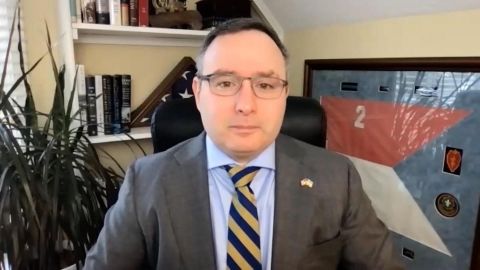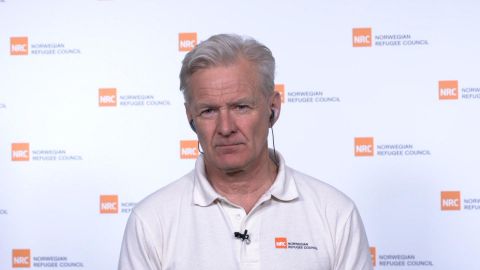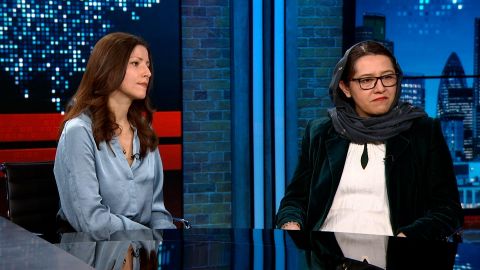Read Transcript EXPAND
CHRISTIANE AMANPOUR: Tell me what role women are playing, because we know that the Kurdish women brigades, for instance, but we haven’t really seen a lot of pictures of women soldiers, but I understand there are. It’s a big percentage of the army.
OLESYA KHROMEYCHUK, UKRAINIAN INSTITUTE LONDON: Absolutely. Women are playing the role on every possible level of society in this resistance, so standing with the armed forces, and 22 percent or so of the armed forces are women at the moment.
AMANPOUR: That’s big.
KHROMEYCHUK: Yes, it is so. And the fighting force is about 12 percent women. So it’s really huge, and more and more are joining the territorial defense as well. And I’d like to highlight that we — we watch these pictures of territorial defense of civilians taking up arms. And a lot of us admire their effort and their desire to resist in every possible way. But, really, it’s heartbreaking for me to see civilians having to do that. It means that they feel that they are the only ones who will defend their own country. They feel on their own, so they’re desperate in their attempts to defend their country. We also see defiance of unarmed women as well. I mean, I’m sure a lot of your viewers have already seen the images of a woman, unarmed woman, approaching a soldier, a Russian soldier, and offering him sunflower seeds and saying, put these in your pockets, so that sunflowers, the flower — for us, the flower of morning and peace will grow out of your body when you die on our soil. So there’s resistance, powerful resistance, with words, with weapons with everything possible. And the reason for that is because we know what Russian occupation is like. We have enjoyed it for eight years in Crimea and in Donbass. We have seen concentration camps formed out of captured galleries. That was the case in Donetsk. There’s an art center called Isolation, as it happens, Izolyatsia, which has been turned into a concentration camp, where people chose to commit suicide rather than endure the tortures that they are witnessing. We hear of numerous reports of…
AMANPOUR: Now or then?
KHROMEYCHUK: Well, it’s been — it’s still there. It was captured in 2014. And it’s still in operation now. And it’s — the situation there is only getting worse and worse. And, of course, who is suffering first and foremost? When we talk about wars, we usually think of trenches, of battlefields, of the army and so on. But it engulfs the entire society, right? And who is the least protected? It’s usually women with dependents.
AMANPOUR: Yes.
KHROMEYCHUK: We see this in Mariupol. We see this in all of the besieged cities at the moment. The people who are least protected are women who are looking after the children or the elderly or siblings and others who need protection. At the moment, they are cut off completely. They have no water. Your reports were covering that very clearly. They have no means of leaving. They are being fired on as they’re trying to escape.
AMANPOUR: Right.
KHROMEYCHUK: There’s a scorched earth policy happening at the moment.
About This Episode EXPAND
The independent Norwegian Refugee Council has announced plans to support 800,000 victims, both inside and outside Ukraine. Olesya Khromeychuk and Orzala Nemat discuss how women too often bear the brunt of conflict across the world. Lt. Col. (Ret.) Alexander Vindman discusses the Ukraine war, how Trump and the GOP empowered Putin, and what it is like to sound the alarm to no avail.
LEARN MORE


